Make the Case lists choices chronologically, rather than in any order of quality. Picks reflect film acting roles only. If the actor in question also directed the movie, that’s purely a coincidence, and it plays no part in the film’s inclusion.
Some actors or actresses hit the ground running, making it clear to audiences from practically the first time they opened their mouths on-camera that they were going to do great things within their medium. Others take a little while to hit their stride, find a style (or even director) that allows them to crack open the potential that compelled them into acting in the first place.
Few would argue that Julianne Moore isn’t in the first category. She started out in television in 1984. By 1988, she was the winner of a Daytime Emmy. By 1990, she made the transition to film with Tales From the Darkside. She wasn’t amazing in that, but it also certainly doesn’t strike you as a debut film performance. Moore has always had that confidence in her characters, even when she’s playing women who are profoundly ill, whether that is psychological, or physical. It’s a diverse type of confidence. It can be found in characters who are strong in their convictions, their overall character. It can be found in the characters who are hanging by a thread in every conceivable way. With Moore, you have an actress who has been consistently excellent in her field with almost every project she’s taken on. Even with her movies in which the writing, editing, and/or directing are failing the audience, you can count on her performance to be a small saving grace.
More often than not, her work amounts to a hell of a lot more than that. The best thing about her in the present is how disinterested she seems to be in comfort zones. You see someone in her work who is consistently pushing themselves to do different, even painful things. Combined that with confidence, you have someone who almost always succeeds in keeping the attention of an audience. That’s in the best way possible, too.
Her range is a wonderful thing to explore in greater detail. You can certainly find that argument in the myriad of films that make up this latest edition of Make The Case. Once again, I’m forced to deal with the fact that when it comes to someone of this caliber, five films will barely scratch the surface.
1. Safe (1995)
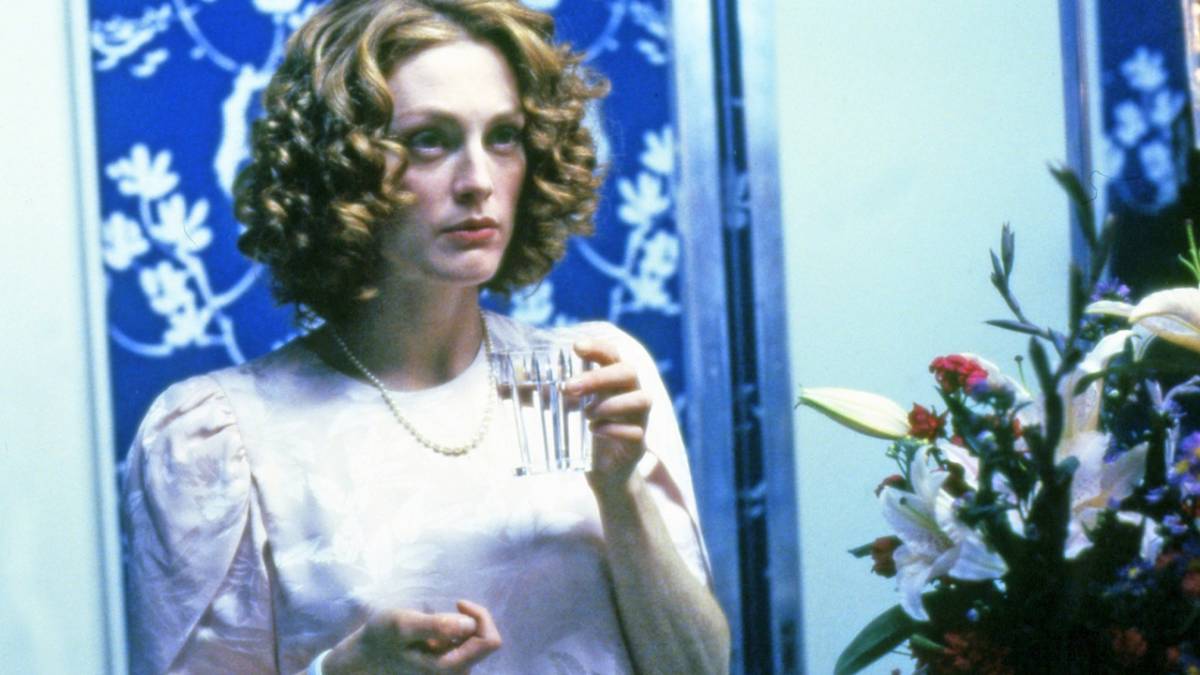
Up to 1995’s Safe, a brilliantly cruel farce from writer/director Todd Haynes, Julianne Moore had built up an impressive body of work. Between film and television, she had already picked a number of roles, accolades, and even some awards. While there are some good-to-great supporting performances to be found, Safe might be the first time you really get a sense of what Moore was capable of as an actress.
As versatile as she is, Moore is particularly adept at playing women who carry sacrifices the way a fanatically devout catholic might carry their perceived sins. Safe is one of the best examples of that character type. Not only does Moore succeed in creating a character that is purely her own, but her MCS (multiple chemical sensitivity)-afflicted housewife is a perfect realization of Todd Haynes’ unearthly, pitch-black caricature of suburbia and contemporary middle-class life. The film itself is one of his best. Moore’s performance here is a clear indication of not only her talents, but the risks she would begin to take, as her career moved past the supporting cast.
2. Boogie Nights (1997)
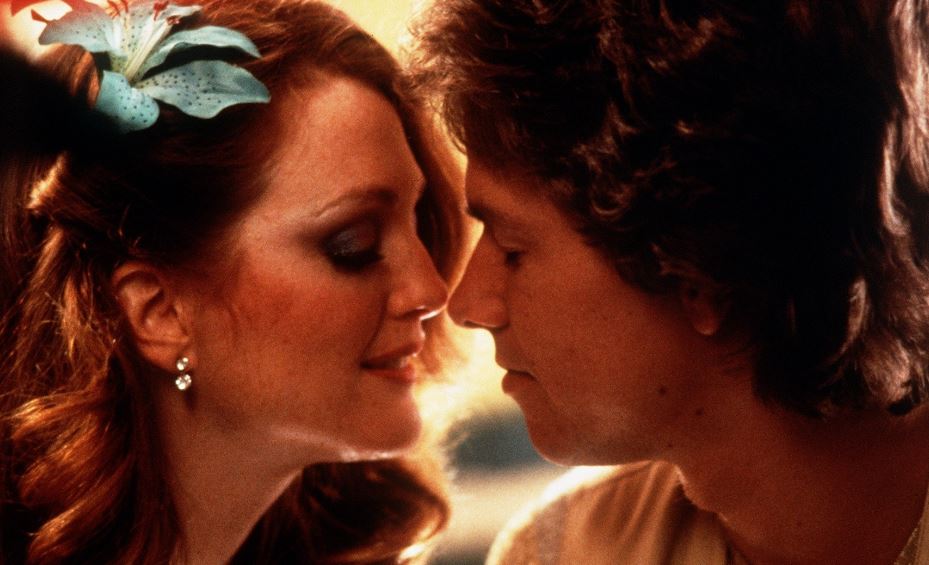
Julianne Moore’s portrayal of Amber Waves in Boogie Nights is the one character I always desperately want to learn more about, whenever I watch the film. No other performer in the film better displays the emotional wounds of a life filled with bad circumstances and questionable decisions.
Paul Thomas Anderson’s epic ensemble drama about the 1970s porn world is packed with great performances. This is the movie that more or less put Wahlberg on the path to being an actor we would occasionally have to take seriously. This is also the comeback movie that Burt Reynolds famously squandered on being very Burt Reynolds about things. Boogie Nights was a massive surprise hit upon its release in 1997. It holds up quite well, particularly in the performances, and in the varying degrees of energy that Anderson creates to suggest the highs and lows of not only main character Dirk Diggler, but of the time period itself, as well.
The intensity of those highs and lows can be found in every moment Julianne Moore is on the screen. No other character in the film is more sympathetic, more haunted by their bad circumstances and questionable decisions. Moore plays Amber Waves as a crumbling mess, but she also makes it a point to show us someone who is more than their mistakes. In other words, she chose the most difficult path imaginable in her depiction of a maternal, intelligent, emotionally tenuous adult film star. It’s fortunate for viewers that she did.
3. The Big Lebowski (1998)
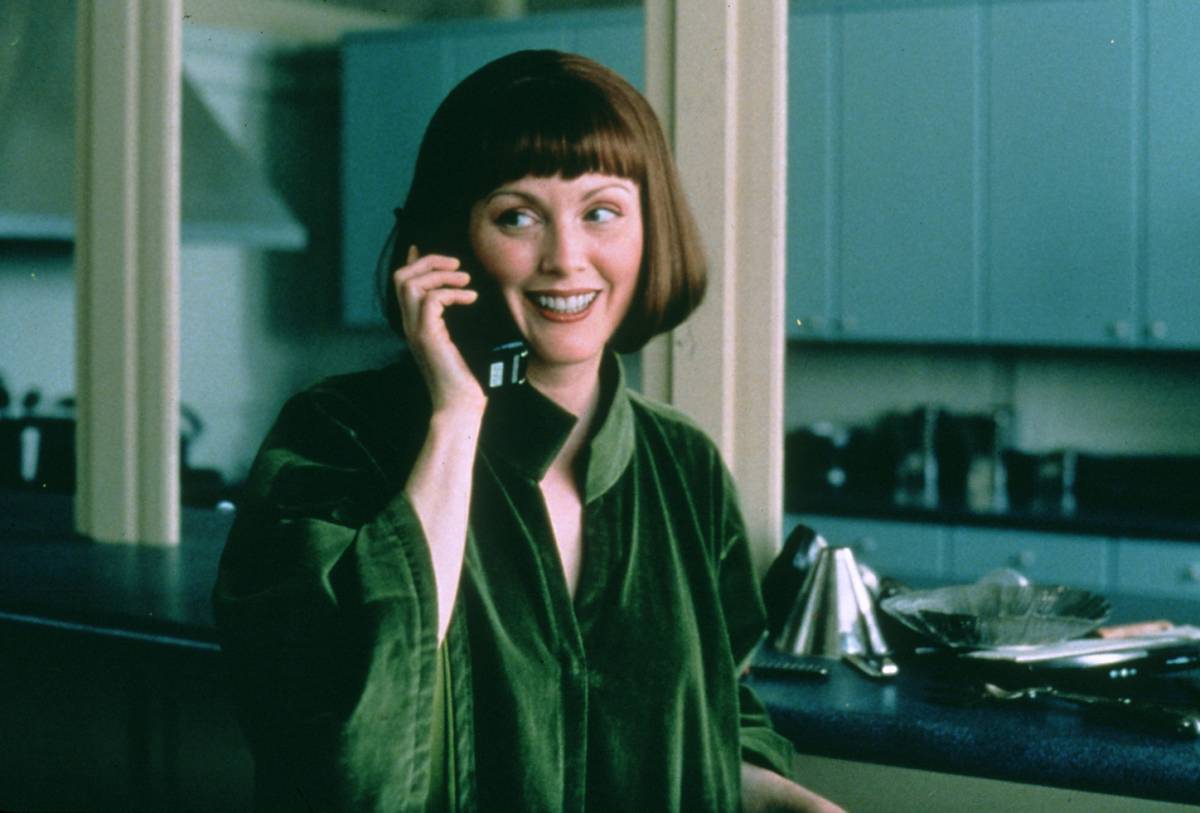
Like everything else in the Coen Brothers’ cult favorite, there isn’t nearly as much of Julianne Moore as the pretentious feminist artist Maude Lebowski as we want there to be. Her character is just one of the many odd things that Jeff “The Dude” Lebowski (Jeff Bridges) has to deal with, and all because someone peed on his fucking rug. I wouldn’t call her my favorite aspect to The Big Lebowski, but she’s up there. It’s impossible to imagine anyone playing Maude for laughs, without actually making fun of her, with the depth and talent that Moore continuously displays in her acting choices.
Like everything else that makes The Big Lebowski a classic, it’s also difficult to imagine the movie being quite as great as it is without her.
4. Savage Grace (2007)
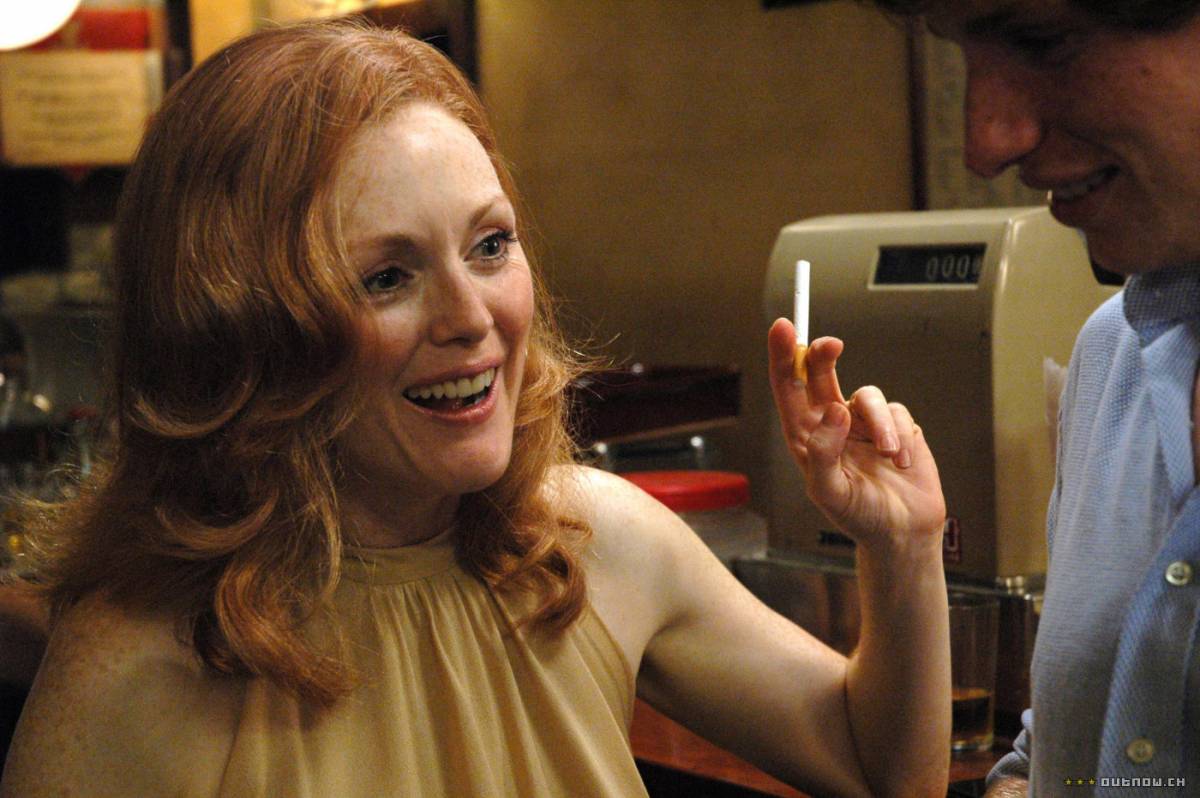
This depiction of the infamous Barbara Baekeland murder of the early 1970s is more than a little flawed in its pacing, writing, and direction. In telling the deeply unhappy story of Baekeland, her son Antony, and the unhealthy, possibly incestuous relationship that existed between them, Savage Grace can’t help but succumb to its own cold misery.
None of these people are sympathetic. Nothing in the movie is humorous, and there are no silver linings. Making a film like that is difficult. Savage Grace has moments of near-greatness as a film, but it’s really Julianne Moore who drives the main reason to see this film. Yet again taking on an extremely risky, challenging character, she manages to get us as close to feeling sorry for these wretched people as we could ever be compelled to feel. Beat-for-beat, her depiction of this unhealthy, emotionally stunted woman is flawless, avoiding the many traps that sink much of the rest of the film.
5. Maps to the Stars (2014)
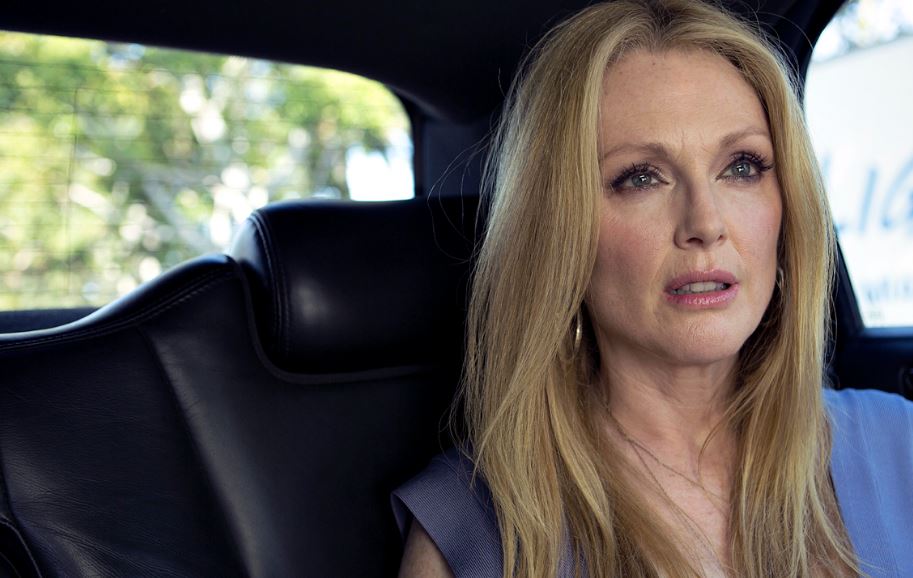
Although Moore would win Best Actress for Still Alice, which also came out in 2014, I have to choose this film and this performance over a performance for an award she should have won two decades earlier. Still Alice is a harrowing, unforgettable journey of a woman slowly losing her mind.
In Maps to the Stars, David Cronenberg’s blistering, unwaveringly sadistic satire of Hollywood, Moore plays someone who detached from reality ages ago. Her aging, manic actress could be any number of women who have been left in ruins by a sexist, suffocating Hollywood. Moore doesn’t pick any specific person to base this character on. She certainly doesn’t just opt to play an exaggerated version of what we think she might be like in private. Instead, she uses Havana Segrend to create the most graphic, powerful assault on fame the movie has to offer. The monster Moore constructs in Maps to the Stars is easily the most terrifying she has been to date.
Some of the coverage you find on Cultured Vultures contains affiliate links, which provide us with small commissions based on purchases made from visiting our site.
